- Home
- Linda Castillo
A Simple Murder Page 7
A Simple Murder Read online
Page 7
An elderly Mennonite woman wearing a green print dress and small organdy head covering stands at the reception counter, her arthritis-bent fingers pecking at a computer keyboard. Her name tag tells me her name is Ruth and she’s a volunteer.
“Hello,” I say as I cross to the counter.
She glances up from her work and startles a little at the sight of my uniform. “Oh. Hello there.” She chuckles. “Didn’t expect to see a woman policeman.”
I introduce myself. “I’m working on a case and was wondering if you could answer a few questions for me.”
“I will if I can,” she says. “Can’t imagine what would bring a policeman to a birthing center, though.”
I give her the rundown on Baby Doe and take her through the same series of questions I asked the RN at the hospital.
“I’m sure you know the majority of our clientele here at Care Cottage are Amish,” she tells me. “We’ve had several Englischer women in the last few months; most were interested in a more natural birthing process. And of course we’re more affordable here than a typical hospital.” Her mouth tightens and she gives a nod. “The birth of a baby is usually a happy occasion.”
“What about a very young woman? Have you had any teenagers come in?” I ask. “Or perhaps an unmarried woman?”
“We had one unmarried Mennonite woman come down from Cleveland. That’s been a couple of months ago, and to tell you the truth, she wasn’t too concerned about not having a husband.”
“Have any women come in for a prenatal checkup and not returned?” I prod. “Or do you know of any women who were in an unhappy or abusive relationship?”
“Oh, I sure do hate to think of that happening to a woman with a baby on the way.” Her brows knit. “Chief Burkholder, I’ve been a volunteer here for eight years, and I don’t recall anything like that.”
I pull out my card. “If you think of something, will you give me a call?”
“I sure will.” She sets the card next to her computer. “I hope you find what you’re looking for, Chief Burkholder.”
“Me, too,” I tell her. “Me, too.”
* * *
I swing by LaDonna’s Diner for a BLT and a large coffee to go and take both to the police station. I’m sitting at my desk, paging through messages, when Lois peeks her head in the door. “Sorry to disturb your lunch, Chief.”
Swallowing coffee, I set down the sandwich. “It’s okay. What’s up?”
“Mrs. Stelinski is here to see you,” Lois tells me. “She owns that fancy baby boutique down the street? Says it’s important.”
The name is vaguely familiar, but I don’t recall ever meeting her and I’ve never been in the shop. “Send her in.”
A moment later, a tall, delicately built woman decked out in Ralph Lauren and over-the-knee boots walks into my office. “Chief Burkholder?”
I stand. “What can I do for you?”
Offering a dazzling smile from lips the color of overripe plums, she strides to my desk, her perfectly manicured hand outstretched. “I’m Paige Stelinski. I own the Little Buckeye Baby Boutique just off of Main Street?”
The shop is a chic specialty store that caters to upscale clientele and sells every baby item known to mankind. It’s a tourist magnet, one I’m sure has prompted many a new parent to lay down too much cash—and enjoy every minute of it.
“It’s nice to meet you, Mrs. Stelinski—”
“Oh, call me Paige, please.” I catch a whiff of Chanel No. 5 as she takes the chair adjacent to my desk. “I took one of my clerks to lunch this afternoon and she was telling me about that abandoned baby found out at the Amish bishop’s place? Well, I got to thinking and it reminded me of an odd incident that occurred at the shop a few weeks ago.”
My interest piqued, I lean forward. “What kind of incident?”
“Shoplifting.” She tilts her head at me, her brows raised nearly to her hairline. “Crazy, right? I mean who steals baby things?”
“I don’t recall my department taking a call for shoplifting at your shop.”
“That’s because I didn’t file a complaint. I came this close.” She raises her hand, indicating a small space between her thumb and forefinger. “I mean, stealing? Seriously? Ultimately, I chose not to press charges against this young man. There was just something about him. Earnest, you know? And he was Amish. Clean-cut. He seemed truly embarrassed and, frankly, ashamed. Not just because he got caught, mind you. But because he’d stooped to the level of stealing. Like it went against his code of honor or something. To top things off, he offered to make it right by working off the cost of the items.” She laughs. “Just between us, by the time he finished with me, I was putty in his hands.”
I’m not holding out hope that this incident is related in any way to Baby Doe, but I listen with interest nonetheless. “What makes you think that has something to do with the abandoned newborn?”
“That’s what was so strange and pathetic about the whole thing. The items he took.”
“What were they?”
“He had this cute little onesie. The yellow one with bears on it. And two pairs of newborn socks. A knit hat. Who steals stuff like that?”
“Did you get his name?”
“In a sad twist, Chief Burkholder, his name was Noah Fisher.”
The words impact me like a sucker punch. Not too hard, but in just the right place. Six weeks ago, I worked a fatality farm accident in which a young Amish man driving a horse-drawn manure spreader fell and ended up under the wheels. He was killed instantly. It was one of the saddest and most disturbing accidents I’d ever worked. Noah Fisher was seventeen years old. An only child. And his parents were absolutely devastated.
Paige Stelinski is still talking. “Anyway, after I caught him and we talked, he spent the rest of the day cleaning the storage closet and the bathroom, too. I’m telling you, the place gleamed when he was finished. I let him have the items he wanted, and I threw in a pack of cute little bibs.” She shakes her head. “I didn’t give it much thought and just figured he had a little brother or sister on the way and his mom needed help. Just about broke my heart when I heard he was killed. Really nice boy and talented, too.” She laughs. “A woodcarver, of all things. I ended up buying some toys from him.” A wistful sigh escapes her. “I’m sure one day he would have been quite the businessman.”
The mention of the wood carving garners my attention. “What kind of toys?”
“Kind of rustic, but interesting. I think there was a top. A little round teething toy. A couple of rattles. Even a toy box.”
I pull the evidence bag containing the rattle from my desk drawer. “Do the rattles look like this one?”
Her mouth opens. “Exactly the same.” Her eyes land on mine. “You think he’s the—”
“I’d appreciate if you’d keep this between us for now,” I cut in.
“I understand. Of course.”
At the moment, she means it. But I’ve been around long enough to know it won’t last. This is too juicy not to become gossip. At some point, she’ll have a weak moment and spill her guts. The details of the story and the players involved will eventually get around. But if Noah Fisher was involved—if he’s the father of Baby Doe—I want to let his parents know before they hear it from another source.
“I appreciate it,” I tell her. “His parents have been put through the ringer.”
“I can’t imagine how devastated they must be. He was such a sweet kid.” Rising, she smooths her hands over her midi skirt. “In any case, I don’t know if any of what I’ve just told you is helpful, Chief Burk-holder, but I thought it was my civic responsibility to let you know.”
I stand and extend my hand for a shake. “I appreciate your coming in to talk to me, Ms. Stelinski. I’ll let you know if anything pans out.”
* * *
Willis and Miriam Fisher live off a dirt road a few miles east of Charm. The house and barn are plain, but picture pretty and well kept. A massive elm tree stands sentinel in the fr
ont yard. I park behind an Amish wagon loaded with hay, grab the evidence bags containing the rattle and quilt, and take the sidewalk to the front door. I knock and wait. Frustration presses into me when there’s no answer. I’m in the process of leaving a note when I hear the clip-clop of shod hooves against hard-packed dirt. I turn to see a black buggy pull into the gravel lane.
Tucking the half-written note into my pocket, I leave the porch and meet them in the driveway. “Guder nochmiddawks,” I tell them. Good afternoon.
An Amish man with a shaggy red beard slides from the buggy. He’s about fifty years of age, wearing a blue work shirt, dark trousers with suspenders, and a frayed black coat. His eyes are the color of a cornflower. As I draw closer, I sense those eyes had once been full of good humor and maybe a joke or two. Today, they’re shadowed with the grief of a parent who’s lost a child.
“Mr. Fisher?”
“That’s me,” he says.
I identify myself and offer my hand for a shake. He gives it two firm pumps, eyeing me, and I realize he’s just figured out I was one of the police officers here the day his son was killed.
The woman who’d been sitting beside him comes around the front of the horse and approaches. I nod and offer a smile. “You must be Mrs. Fisher?”
She smiles back. But I can tell it’s a habit born of politeness. A sense of sorrow hangs in the air like a pall.
“Please call me Miriam,” the woman says.
“What can we do for you, Chief Burkholder?” Willis Fisher asks.
“I’m working on a case,” I begin. “Would you mind answering a few questions? It’s about your son.”
The Amish man’s eyes narrow. “What kind of questions could you possibly have about a dead boy? Did he do something wrong?”
His wife reaches out and pats his arm. “Willis.”
“I’m sorry,” I tell them. “I know it must be difficult for you.”
“We miss him every day,” Miriam tells me. “His voice. His smile. The way he used to slam the screen door in the kitchen.”
“We find comfort knowing Noah is with the Lord,” her husband says. But the Amish man looks anything but comforted.
I hold up the evidence bag containing the rattle. “Do either of you recognize this?”
Willis’s eyes flick to the rattle. His mouth opens slightly. A quiver runs the length of his body.
“Oh, my.” Miriam looks from the rattle to me. “May I?”
I hand her the bag. Removing a pair of spectacles from her apron pocket, she slides them onto her nose. “Noah made this.” She runs her fingers over the smooth wood. “I’m sure of it. He was a fine carver. He could make anything he set his mind to. Where did this come from?”
I don’t want to answer that yet, so I hold up the bag containing the quilt. “What about this?”
“That’s…” She takes the bag from me, handles it with reverence. “I made this quilt. Right before Noah was born. My goodness, I thought I’d misplaced it.” She raises her gaze to mine. “Where on earth did you find it?”
I go to my next question. “Mr. and Mrs. Fisher, do you know if your son was seeing anyone? Did he have a girlfriend? Or someone he was courting?”
“A girlfriend?” Willis spits the words at me. “Why do you want to know something like that?”
Making a sound of discomfort, his wife sets her hand on his arm. “Now, Willis…”
“I understand it’s a personal question,” I tell him, “but it may be related to a case—”
“I’m going to unhitch the horse,” the Amish man says abruptly. “I don’t wish to speak of my son or disrespect his memory with questions about girls.” Shaking his head, he grasps the reins and leads the horse toward the barn.
Miriam and I watch him walk away. When he’s out of earshot, she lowers her voice and says, “Would you like a cup of coffee, Chief Burkholder?”
I can tell by the way she’s looking at me that she’s offering more than coffee. Something she’d prefer her husband not hear. “I’d like that very much,” I reply.
A few minutes later, I’m seated at the big rustic table in her kitchen. Miriam fusses with an old-fashioned percolator, then sets a platter mounded with oatmeal cookies on the table while the coffee perks. Within minutes the aroma of fresh-brewed coffee fills the air. She places a steaming mug in front of me. I sip, find it strong and good.
“I know it must be difficult talking about your son so soon after his death,” I begin.
“Some days I still can’t believe he’s gone. He was such a force and so full of life.” She bows her head slightly. “To tell you the truth, I could talk about Noah all day. And I do, sometimes, to anyone who will listen.” Her lips twist into a sad replica of a smile. “Willis took his death hard. Won’t speak of it. Spends all his time in the barn, working.” She chuckles. “I think we have the cleanest horse stalls in all of Holmes County.”
We reach for cookies at the same time and smile at each other. I like this woman, I realize. She’s kind and maternal and it’s hard to look into her eyes and see so much pain.
“Noah was our only child,” she tells me. “I had some problems with his birth and I was never able to carry to term again. Lost four little souls in the years that followed.”
“I’m sorry.”
“It was God’s will.”
I nudge her back to my question. “Mrs. Fisher, do you know if Noah was seeing someone?”
“I’m pretty sure he was courting a girl. There were a few times when he didn’t come home. He was on rumspringa, you know, so we tried not to pry. Willis thought he was out drinking and raising cane with his friends.” She looks at me from beneath her lashes. “But I knew. I knew because Willis acted the same way while he was courting me. Like he had a hundred dollars in his pocket and the world at his feet.”
“Do you know her name?”
“I asked Noah about it once or twice.” Another sad smile. “But he wouldn’t speak of her.”
“Any idea why he didn’t want to say?”
She lifts her shoulders, lets them drop. “I don’t know. For whatever reason, he wasn’t ready, I suppose.”
I struggle to find the right words to ask her about the possibility of a pregnancy. “I thought it was interesting that he carved a baby rattle. Do you have any idea why he would make something for a baby?”
“At first I thought it was for the money. I thought maybe he was selling things to the shops in town.” Her expression turns sage, and she sets down her mug. “Let me show you something.”
We leave the kitchen. I follow her through the living room and up the stairs to the second level. Down a darkened hall toward a bedroom at the end. She pushes open the door and we walk inside. Like many Amish homes, there’s no closet. Clothing and hats are hung on hooks or dowels set into the wall. Boots are left in the mudroom downstairs.
“This was Noah’s room,” she tells me.
I notice a hand-carved wooden yo-yo on the table next to the bed. The handmade wooden rocker in the corner. Above the steel frame headboard, a wood wall-hanging depicts the faceless images of an Amish boy and girl. “He made some beautiful things,” I tell her.
Miriam goes directly to a wooden trunk at the foot of the twin-size bed and opens the lid. Something inside me quickens at the sight of the items inside. We kneel. With a certain reverence, she picks up a newborn’s onesie. A wooden teething ring. A rattle much like the one in my evidence bag. A double pack of baby bottles. I recognize the bibs from the Little Buckeye Baby Boutique in town.
When I glance over at Miriam, tears are streaming down her cheeks. “I don’t know why he had these things,” she whispers.
“It’s almost as if he was saving them for something,” I say gently. “Or someone.”
“In all the years Willis and I have been married, I’ve never lied to him. I’ve never kept anything from him. But I didn’t tell him about this.”
“Mrs. Fisher, did you hear about the newborn baby found on Bishop Troyer’s
front porch?” I ask gently.
“I heard.” She lowers her gaze. “And I’ve been praying ever since.”
For the first time I understand why she didn’t want her husband to overhear our conversation. “I’m trying to find the mother,” I say softly.
We stare at each other, a silent communication passing between us. A silent voice telling us now is not the time for certain words.
“Goodness.” Forcing a laugh, the Amish woman brushes at the tears with both hands. “Would you look at me?”
“Miriam, is it all right with you if I take a look around Noah’s room?” I ask gently.
Her gaze slides to the window. “I suspect Willis will be in the barn for a while.…”
“I promise not to leave anything out of place.”
Giving me a decisive nod, she gets to her feet. “I’ll fetch our coffee.”
* * *
I begin my search with the trousers hanging on the dowel next to the window, but the pockets are empty. I check the windowsill, behind the curtains, but it’s bare. I look beneath the cushion on the rocking chair in the corner. Next, I go to the neatly made bed. I peel back the vintage quilt and look beneath the pillow. I squeeze the stuffing, but there’s nothing inside, either. I look under the bed and randomly check for loose floorboards. There’s nothing there. Nothing tucked between the box springs and the frame. Finally, I slide my hands beneath the mattress. My fingertips brush something hard. At first I think it’s a board someone added to shore up the frame for support. But the object is small and plastic. I know it’s a cell phone even before I pull it out.

 A Hero to Hold
A Hero to Hold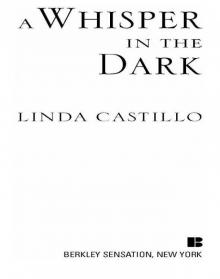 A Whisper in the Dark
A Whisper in the Dark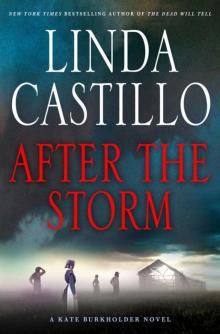 After the Storm
After the Storm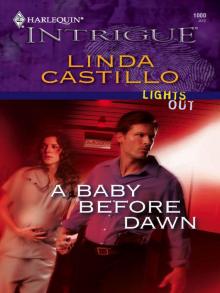 A Baby Before Dawn
A Baby Before Dawn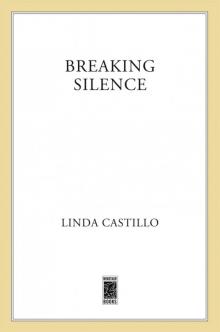 Breaking Silence
Breaking Silence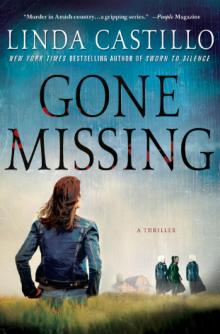 Gone Missing
Gone Missing Long Lost
Long Lost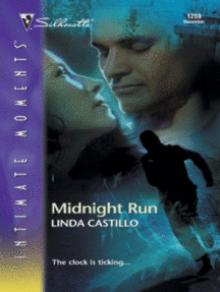 Midnight Run
Midnight Run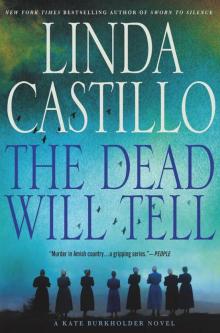 The Dead Will Tell
The Dead Will Tell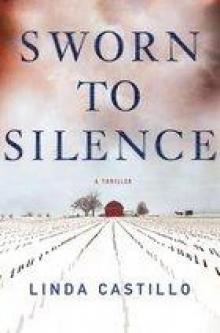 Sworn to Silence
Sworn to Silence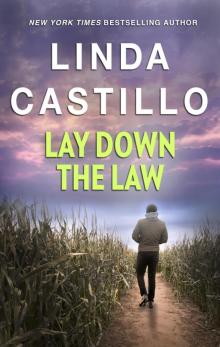 Lay Down the Law
Lay Down the Law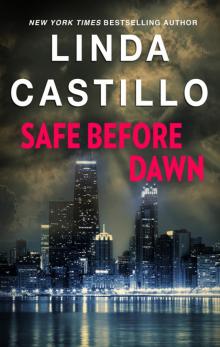 Safe Before Dawn
Safe Before Dawn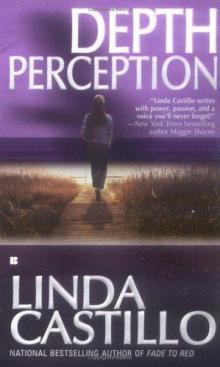 Depth Perception
Depth Perception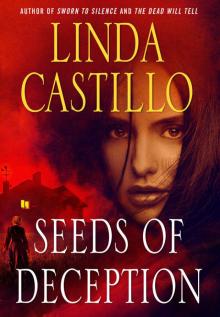 Seeds of Deception
Seeds of Deception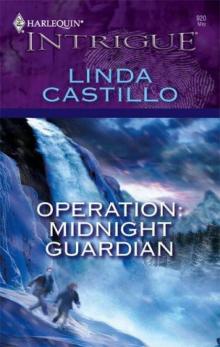 Operation: Midnight Guardian
Operation: Midnight Guardian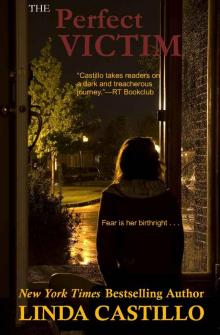 The Perfect Victim
The Perfect Victim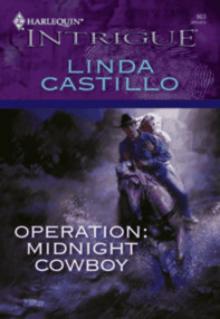 Operation: Midnight Tango
Operation: Midnight Tango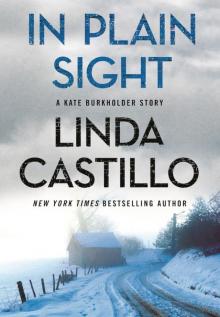 In Plain Sight (Kate Burkholder)
In Plain Sight (Kate Burkholder)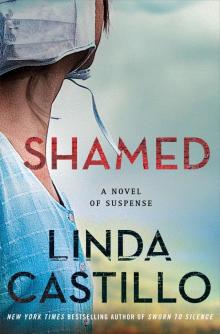 Shamed
Shamed Fallen
Fallen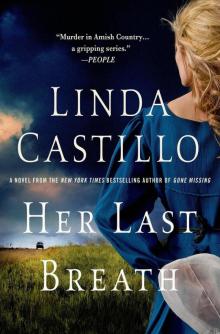 Her Last Breath
Her Last Breath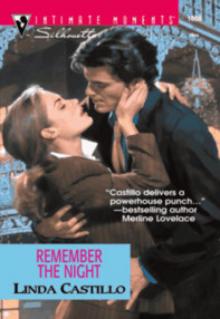 Remember the Night (Men in Blue)
Remember the Night (Men in Blue) Dead Reckoning
Dead Reckoning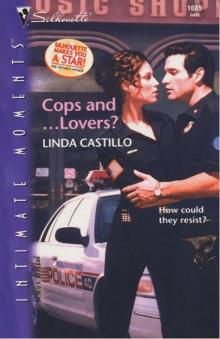 Cops and ... Lovers?
Cops and ... Lovers? The Pact
The Pact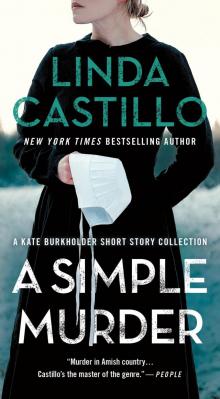 A Simple Murder
A Simple Murder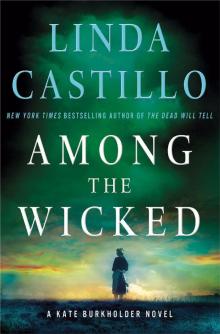 Among the Wicked
Among the Wicked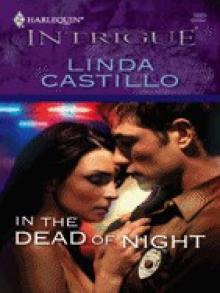 In the Dead of Night
In the Dead of Night Just a Little Bit Dangerous
Just a Little Bit Dangerous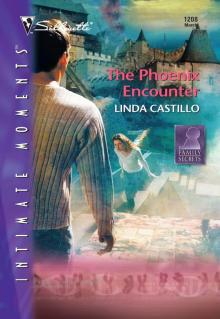 The Phoenix Encounter
The Phoenix Encounter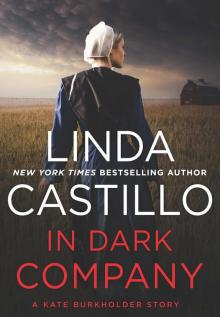 In Dark Company
In Dark Company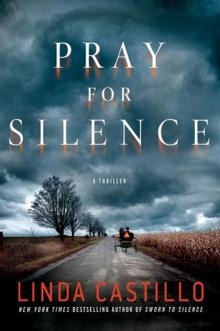 Pray for Silence
Pray for Silence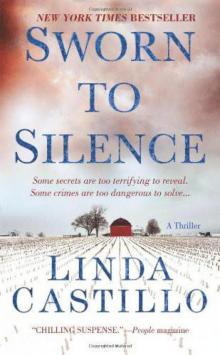 Kate Burkholder 01-Sworn to Silence
Kate Burkholder 01-Sworn to Silence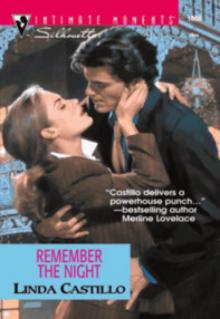 Remember the Night
Remember the Night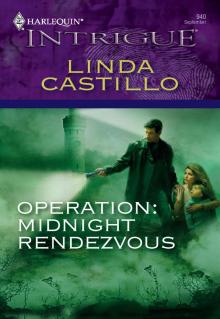 Operation: Midnight Rendezvous
Operation: Midnight Rendezvous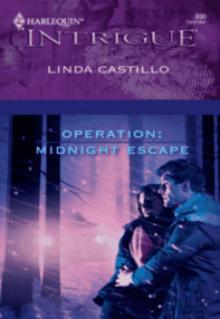 Operation: Midnight Escape
Operation: Midnight Escape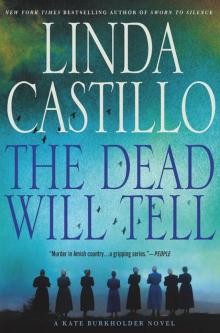 The Dead Will Tell: A Kate Burkholder Novel
The Dead Will Tell: A Kate Burkholder Novel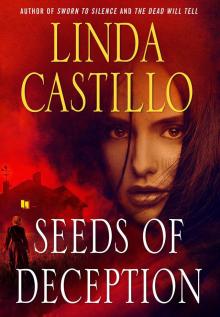 Seeds of Deception: A Kate Burkholder Short Story
Seeds of Deception: A Kate Burkholder Short Story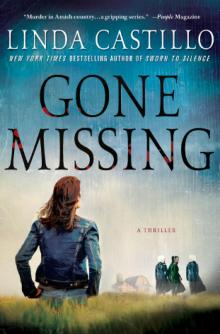 Gone Missing (Kate Burkholder 4) kb-4
Gone Missing (Kate Burkholder 4) kb-4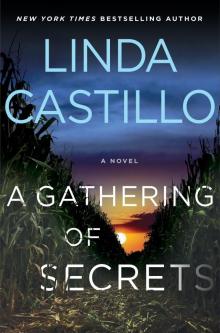 A Gathering of Secrets
A Gathering of Secrets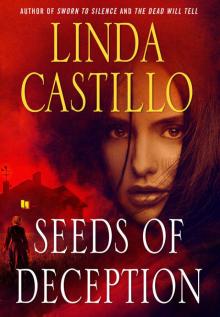 Seeds of Deception: A Kate Burkholder Short Story (Kindle Single)
Seeds of Deception: A Kate Burkholder Short Story (Kindle Single)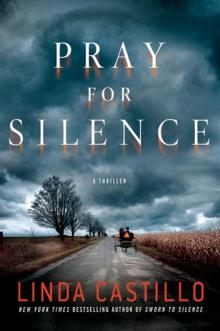 Pray for Silence kb-2
Pray for Silence kb-2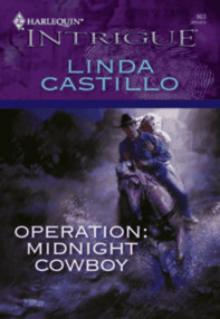 Operation: Midnight Cowboy
Operation: Midnight Cowboy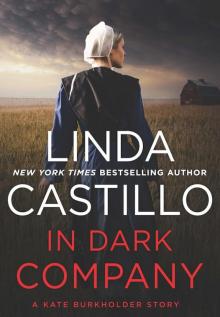 In Dark Company_A Kate Burkholder Short Mystery
In Dark Company_A Kate Burkholder Short Mystery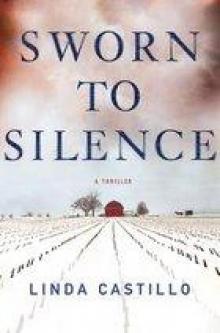 Sworn to Silence kb-1
Sworn to Silence kb-1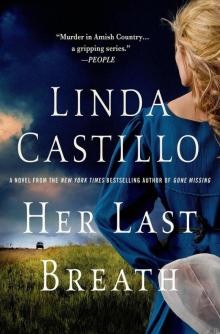 Her Last Breath: A Kate Burkholder Novel
Her Last Breath: A Kate Burkholder Novel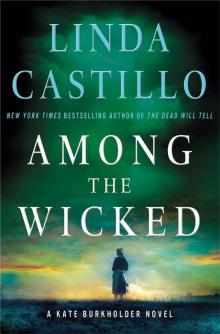 Among the Wicked: A Kate Burkholder Novel
Among the Wicked: A Kate Burkholder Novel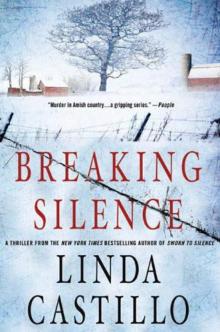 Breaking Silence kb-3
Breaking Silence kb-3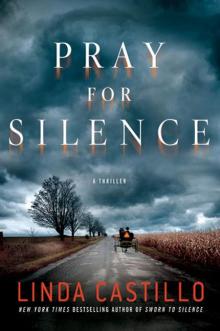 Kate Burkholder 2 - Pray for Silence
Kate Burkholder 2 - Pray for Silence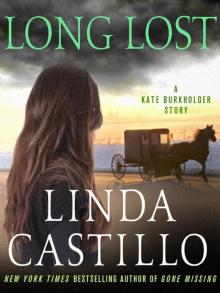 Long Lost: A Kate Burkholder Short Story
Long Lost: A Kate Burkholder Short Story